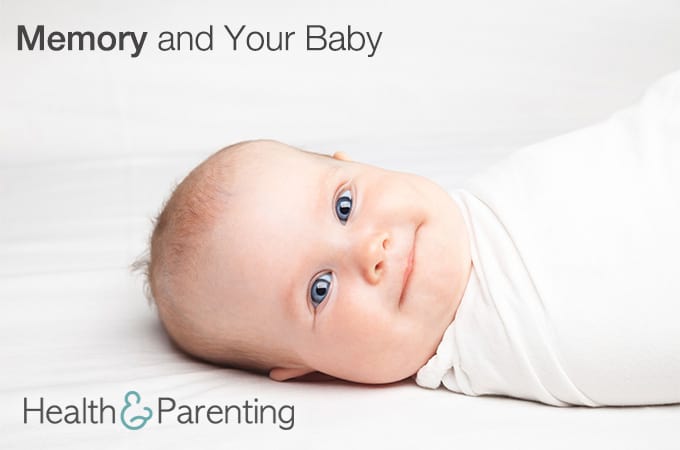Did you know that when your baby was born, he or she was already able to recognize your voice? That’s right, all those months in utero, they were committing your voice to memory, and research now tells us that it is one of the first things your baby will recognize at birth. Little ones intentionally turn their heads to mom and dad’s voice within moments of entering the world.
This type of initial baby memory is called recognition memory. It’s what allows them to recognize things after a short delay, and it is the type of memory your baby will also employ to start remembering your face in the months to come.
Still, it’s pretty much going to be the full extent of your baby’s memory until about 9 months of age. He or she will recognize things and people they are exposed to frequently, but not much else. Baby memory is kind of limited that way.
Around 9 months, your baby will start to develop recall memory. With this type of memory, your little one will begin storing information away that he or she can act upon later. For instance, if you always keep a specific toy in a specific room, your baby will start to remember that and look for the toy when he or she is there. They will also use this type of memory to start with simple problem solving, like remembering that a cupboard can be opened or that clapping makes a noise.
Long-lasting conscious memory, what you or I rely on to retain most of the information we use, won’t develop for your little one until between fourteen and eighteen months of age. Not coincidentally, this will also be when your baby’s language skills start to develop at a greater rate. He or she will start to have favorites—favorite books, favorite songs, favorite games—and will remember people and places that they haven’t seen in several weeks or months.
Even with the development of that long-lasting conscious memory, though, your baby probably won’t start to have any memories that stick through to adulthood until around preschool age. This varies for every child, of course, but try to think back to your own first memory—when was it? For most people, those earliest memories occurred somewhere between 3 and 5 years old, and the same will probably be true for your little one.
That doesn’t mean you shouldn’t try to make lasting memories just yet, though. Even if your baby doesn’t retain the memories of the fun things you do together, new and engaging activities will be great for brain development and social connectivity.
Written by Leah Campbell, infertility advocate, adoptive mama, writer and editor. Find me @sifinalaska on Twitter.
This information is not intended to replace the advice of a trained medical doctor. Health & Parenting Ltd disclaims any liability for the decisions you make based on this information, which is provided to you on a general informational basis only and not as a substitute for personalized medical advice. All contents copyright Health & Parenting Ltd 2016. All rights reserved.










